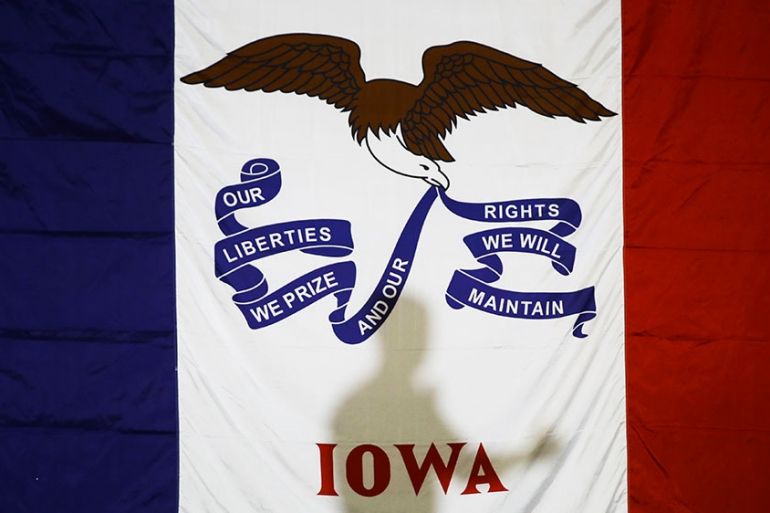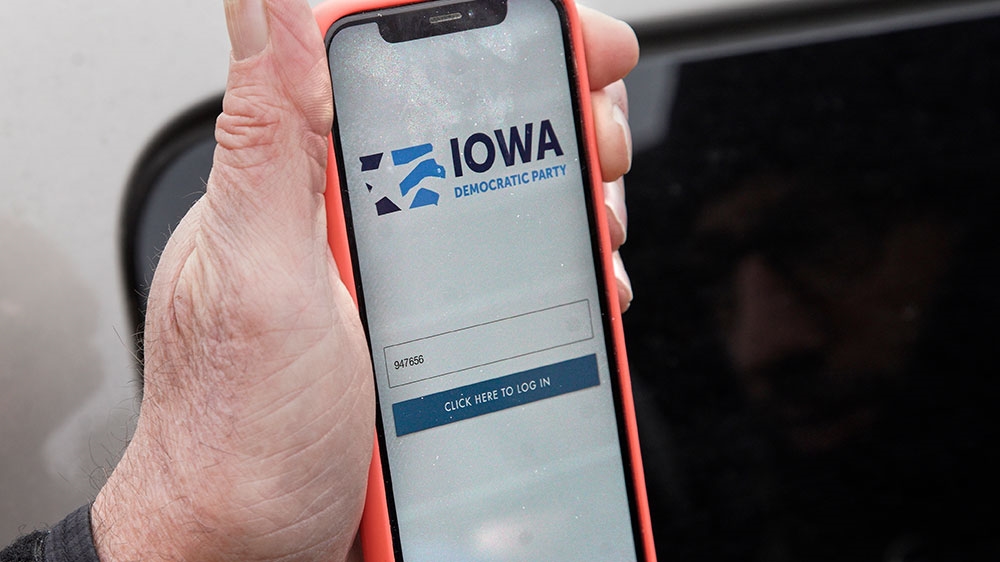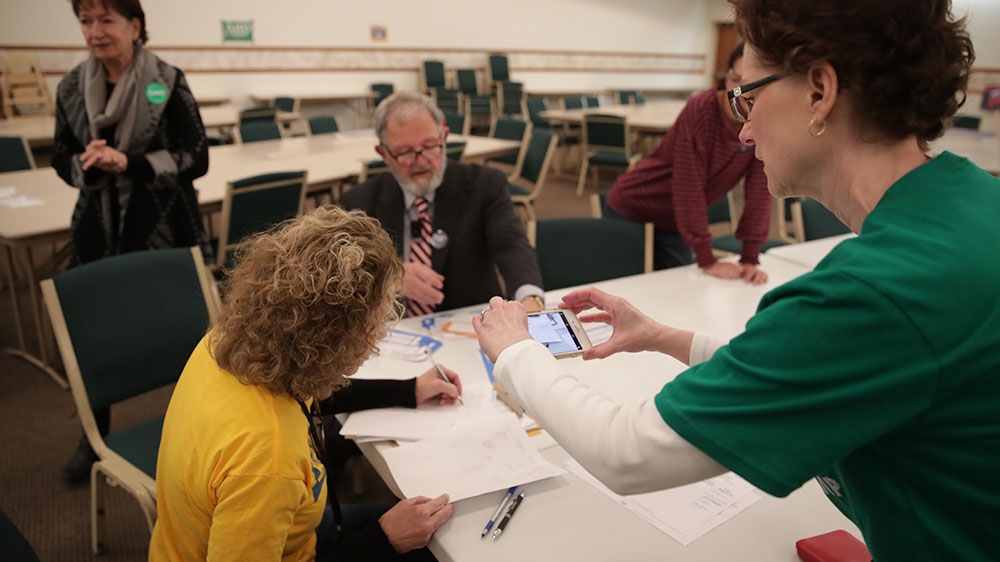After ‘Iowa caucus disaster’, should the US state still go first?
State’s mishaps are re-energising the debate over whether the US should look elsewhere to kick off the primary season.

Ames, Iowa – After a spirited evening of caucusing on Monday, United States Democratic presidential candidates left Iowa not knowing who had won.
After the Iowa party leadership announced that results were delayed due to “quality control”, candidates gave speeches to their supporters and closed out the night. On Tuesday, with more information about a poorly planned and executed collection system – and still no final results – calls across the country to rethink Iowa’s first-in-the-nation status have intensified.
Keep reading
list of 4 items‘Insurrection’ should bar Donald Trump from US presidency, lawyers argue
Ex-Proud Boys leader Joseph Biggs sentenced to 17 years for US Capitol riot
Trump indictments: Key court dates set in Georgia, federal election cases
Twitter was filled with journalists and spectators weighing in, some calling for reforms. Others made light of the complicated system that involves people having to consider choosing a second choice candidate if their first one does not garner enough votes in a first round.
“BREAKING: The Iowa caucus,” tweeted Washington Post newspaper reporter Matt Viser.
BREAKING: The Iowa caucus.
— Matt Viser (@mviser) February 4, 2020
Among others who shared their displeasure as the news and the announcements of delay in results rolled in, Former Housing and Urban Development Secretary Julian Castro tweeted: “This is a total mess. I respect the people of Iowa, they’ve been great – but it’s become very clear that our democracy has been misserved by a broken system.”
This is a total mess. I respect the people of Iowa, they’ve been great—but it’s become very clear that our democracy has been misserved by a broken system. #IACaucus
— Julián Castro (@JulianCastro) February 4, 2020
The former Democratic hopeful dropped out earlier this year. Just months earlier he criticised the Democratic party for continuing to “start our nominating contest in two states, that even though they take their role seriously, hardly have any people of colour”. Castro has since supported Senator Elizabeth Warren.
Castro has not been alone in his criticism of Iowa. For years Iowa, has been criticised for going first, despite having a populace that does not reflect the wide diversity of the country.

While plenty of residents in Iowa have defended the right for the state to keep going first, others have already been questioning the system, particularly whether to keep it as a caucus. Under pressure from the national leadership, the Iowa caucuses, which require people to be present to cast their preference, expanded to include satellite locations in a few other places around the country and three in other countries. In at least one precinct, caucus-goers successfully petitioned to be able to caucus early, as they had to work in the evening.
“Would you like to hear something controversial? I’ve been doing this all my life. I would like to see us not caucus,” said Charlotte Weisenhorn of West Des Moines, above the roar of caucus-goers entering the room and chatting last night. “You want everybody to have a voice? This is not the way to do it. If you have small children at home, you’re not here. If the weather is bad, you’re not here, If you work at night, you’re not here. If you don’t have three hours, you’re not here. I know why we do it. But that’s not what we want.”
Following Castro’s comments last autumn, the Cedar Rapids-based The Gazette newspaper columnist Lyz Lenz, wrote that she – and the newspaper she worked for – benefitted from Iowa’s first-in-the-nation status, but that: “Letting Iowa keep its first-in-the-nation status is unconscionable and undemocratic.”
Dianne Bystrom, director emerita of the Carrie Chapman Catt Center at Iowa State University, has observed caucuses for years but never participated. Due to the very public nature of the event anyone’s neighbours, customers, certainly the media, can see which party and what candidate that person selected.
For Bystrom, she didn’t want that knowledge to colour people’s perceptions of her research and opinions on Iowa politics.
“Based on research actually, I favour a primary system over a caucus system. I just think it’s more democratic. You can early vote,” Bystrom said.

She said while there is a lot of frustration, including from herself, over the fact that the final results have not yet been released, Bystrom said the “media rushed to criticise the process”. Bystrom expects the final number – when released – will be more accurate than in the past. For the first time, paper ballots were used, not just a show of hands in each precinct. She pointed to a lot of inaccuracies in the 2012 Republican caucuses, which later reversed its initial result and decision and gave the win to former Pennsylvania senator Rick Santorum over eventual Republican nominee Mitt Romney.
Since then, Iowa has hosted two more rounds of first-in-the-nation caucuses.
As to whether Iowa might see its position removed once the dust settles, Bystrom said it’s too early to tell. While Iowa does not always choose the eventual winner in the Democratic or Republican conventions, the state usually serves as a good indication that one of the top-performing candidates in the caucuses will go on to win.
“Every four years people say on panels that ‘this could be the last year’,” said Bystrom. “If one of the [top performing candidates] take the Democratic nominations and then essentially wins the presidency, there won’t be a lot of reasons to change that process.”
As to which state would replace Iowa if the state lost its starter position is up for debate.
New Hampshire, whose population is about 94 percent according to the 2010 census, will follow Iowa next week. But unlike the midwestern state, New Hampshire will host a primary, run by state election officials, not a caucus run by the Democratic party – a key difference many pointed to after Monday’s chaos. But New Hampshire, too, is criticised for not being representative of the country.
